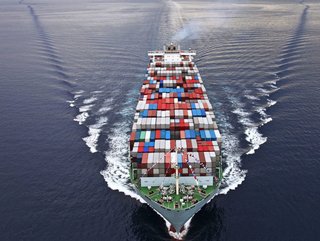Third of shipping industry stalled on switch to green fuels

New research into how shipping industry leaders are planning around the move to lower-carbon fuels shows one-third of respondents don’t know the type of fuel their vessels will run on in future decades.
The survey was conducted by the Global Centre for Maritime Decarbonisation, the Global Maritime Forum, and the Mærsk Mc-Kinney Møller Center for Zero Carbon Shipping, with analysis by McKinsey.
Respondents were shipping companies that own and operate fleets comprising roughly 20% of the world’s total capacity.
A total of 46% say they have already run pilot programs involving one or more low-carbon fuels, such as biodiesel instead of traditional fuel oil, whereas 35% have taken no action regarding greener fuels.
One-third say they “don’t know” what type of fuel they expect their fleets to run on in 2030 and 2050, with the remaining two-thirds with diverging expectations around future fuel usage.
Sea shipping firms ponder clean fuel choices
Projections around sea fleet fuel consumption in 2050 are split evenly among green ammonia, biodiesel, and fuel oil (16%), followed by blue ammonia, liquefied natural gas (LNG), e-methanol, biomethanol, biomethane, and e-methane (between 6% and 10%).
Respondents say they expect to spread consumption across multiple compatible fuels – fuels that ship engines can use interchangeably. Categories include heavy fuel oil, marine gas oil, marine diesel oil, biodiesel, and LNG.
By 2050, 49% of respondents expect to adopt four or more fuel families within their own fleets, while another 43% expect to adopt three families.
Making the leap to a greener-fuel future will require decades of work, but respondents are clear on what they will need to accelerate the transition. More than 80% identify four factors that will speed clean-fuel adoption:
- Greater availability of alternative fuels
- Cost reductions for alternative fuels
- Customer willingness to pay a ‘green premium’
- Regulatory change
There is mounting pressure on sea shipping companies to decarbonise, because the International Maritime Organisation (IMO) expects the sea freight industry to be running on clean energy by 2050.
The shipping sector powers the global economy, being involved in an estimated 90% of all trade. Estimates from the International Chamber of Shipping indicate that around 11bn tons of goods are transported by ships each year – from raw materials to finished products. Global sea shipping accounts for roughly 3% of total global carbon emissions, and these emissions, if unchecked, could rise by as much as half again by 2050.
Sea freight carriers eyeing ship fuel compliance
In a recently interview with Supply Chain Digital, Alex Hersham, CEO of digital freight forwarder and logistics provider Zencargo said the IMO’s demands means carriers “will keep a close eye on what ships are compliant”, and that they will also “analyse which older ships can be scrapped if there is no ROI in making them compliant”.
For older vessels, he says, the choice will be to switch to cleaner and more expensive biofuels “or to simply slow down”, to cut down on fuel consumption.
“With new capacity entering the market, many carriers might choose to retire older vessels rather than maintain inefficient operations,” says Hersham.
He also points out that the IMO is not forcing vessels to comply until 2024, and that it will not prevent non-compliant vessels from sailing until 2025.
“This means any scrapping or idling of ships for the next two years is at the carriers’ discretion,” he says.






